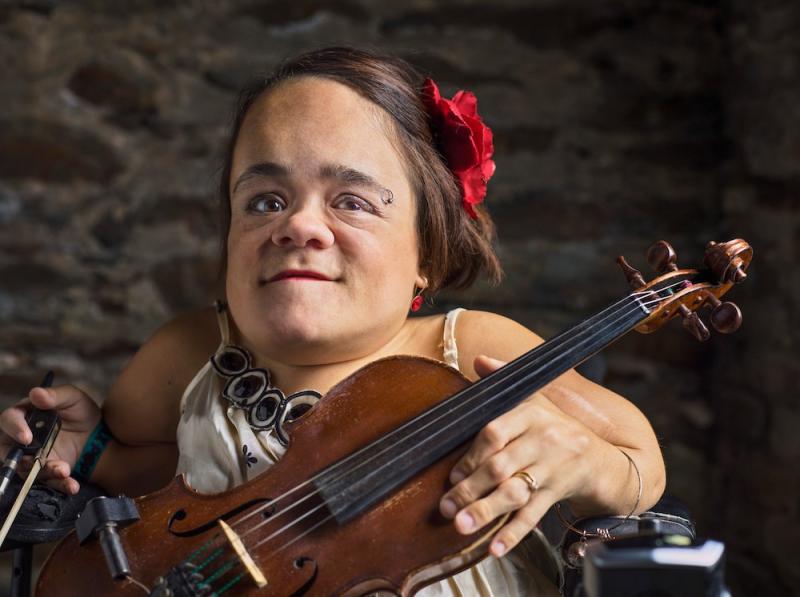Notable Quotable: Gaelynn Lea on Why Accessibility Should Matter to All of Us

Gaelynn Lea. Photo by Paul Vienneau
I would also like people to recognize the universality of disability culture. Because you know, 26 percent of Americans have some kind of disability, so disability is a part of most people’s [own or extended] experience. And if you link it to aging, you capture even more people. The experience of living in a changing body, or a body that doesn't fit what society's standard of normal is, it’s actually a really universal experience. So music written by artists [with disabilities] speaks to something that's just not spoken about otherwise. When you start to put disability culture out in the world, celebrate it, and actually take it seriously, we can start to dismantle stereotypes and also recognize ourselves in the music. I thought it was interesting when I started touring that a lot of people from the LGBTQ community, and some people from different ethnic backgrounds would say, "Well, that song really got to me, it spoke to me."? I think disability culture can also speak to other groups that have been marginalized.
We don't talk about other forms of diversity as something that we’ve got to fix or eradicate. That kind of language isn't accepted for any other minority except, for some reason, we haven't really truly embraced that idea of disability as diversity—yet anyway.
When an orchestra came to play at Gaelynn Lea’s elementary school, she was immediately inspired to learn to play a stringed instrument. Born with Osteogenesis Imperfecta (Brittle Bones Disease) that limits her range of motion, the violinist, singer, and songwriter plays the violin with a technique like that of a cellist. In 2016, Lea won National Public Radio’s Tiny Desk Contest. Follow the link to read the entire conversation with Lea.




